Led by The Clinton Health Access Initiative (CHAI), this sub-programme is developing AT Product Narratives to inform global investment and scoping market-shaping opportunities.
Products Narratives
Product Narratives are key elements of AT2030 objectives, helping to identify opportunities for AT2030 and others to test innovative models of what works to improve access to Assistive Technology (AT) with the potential to reach scale, through innovative products, new service delivery models and local capacity.
These reports will be also foundational in informing ATscale’s activities and investments in line with Objective II of ATscale’s Strategy Overview - to identify and invest in interventions required to shape markets and overcome supply and demand-side barriers for priority AT.
AT2030 look forward to engaging with partners interested in aligning their activities with the proposed strategic approach to enable the sector to collaboratively unlock potential to reach those most in need.
These reports are developed by the Clinton Health Access Initiative (CHAI) under the AT2030 programme in support of the ATscale Strategy.
We also have Accessible formats and translations.
There is also an additional report on clubfoot, entitled "Preventing lifelong impairment: Access to clubfoot treatment in low- and middle-income countries".
Latest
-
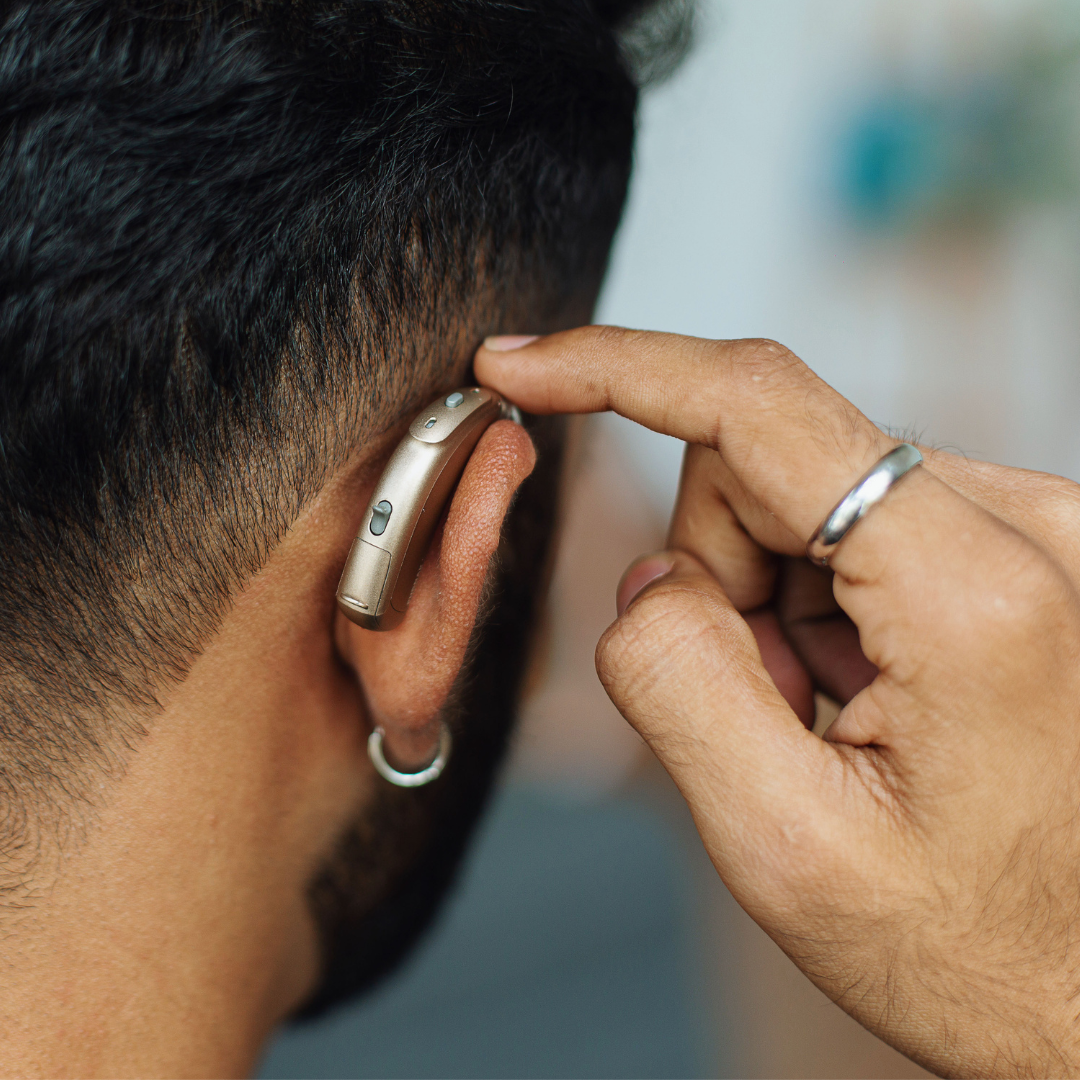
How AT2030 has facilitated a 94% price reduction to power access to life-changing hearing aids
Global Disability Innovation Hub, UNICEFMarch 4, 2024RwandaIn 2021 as part of the UK aid funded AT2030 programme, the Global Disability Innovation Hub and UNICEF were able to add hearing aids to the UNICEF Supply Catalogue for the first time. The catalogue enables governments around the world to access competitively priced and procured products - offering low-cost high-quality solutions for the first time. In Rwanda alone, a 94% reduction has been achieved.
-
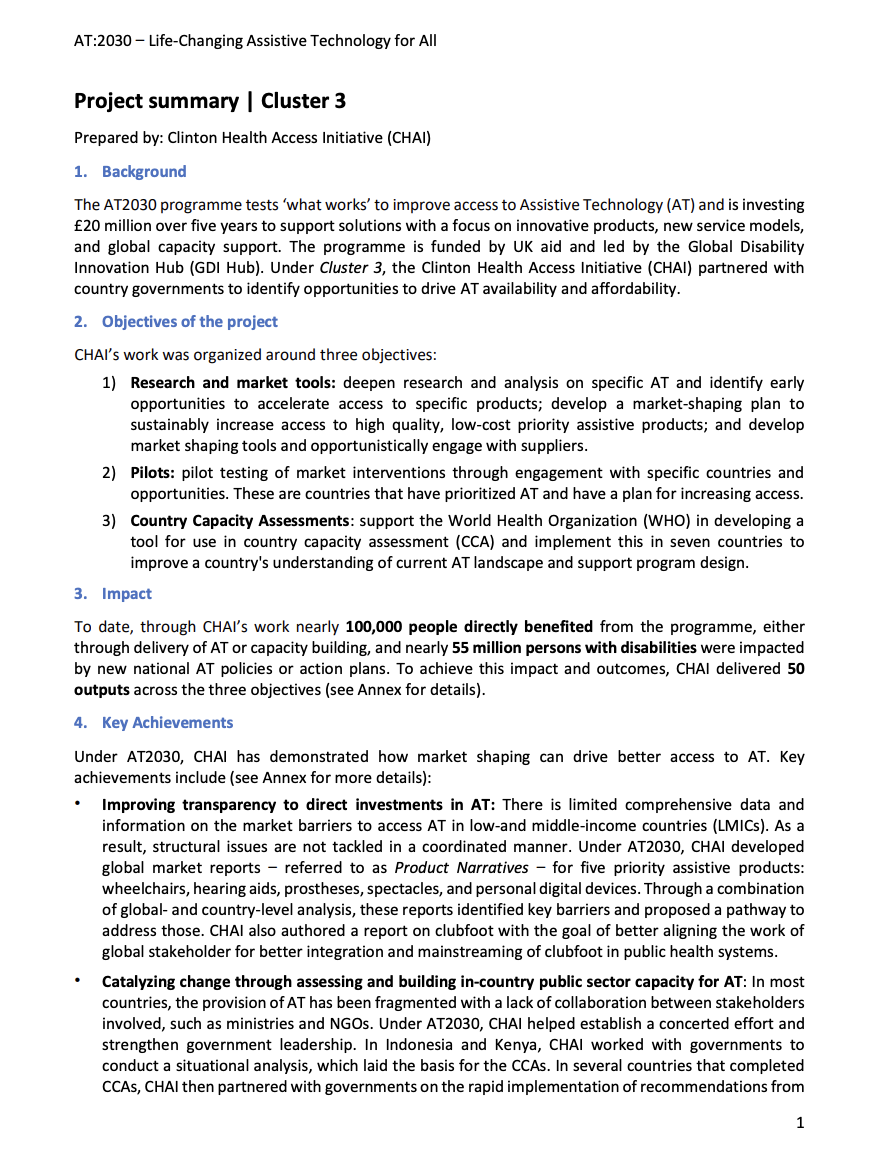
Project Summary: Drive Affordability and Availability
Clinton Health Access InitiativeMarch 10, 2022GlobalCase Studies and ReportsProject Summary of Sub-Programme 6: Drive Affordability and Availability, under Cluster 3. The Clinton Health Access Initiative (CHAI) partnered with country governments to identify opportunities to drive AT availability and affordability. This summary document highlights objectives of the project, impact, key achievements, lessons learned and outputs.
-
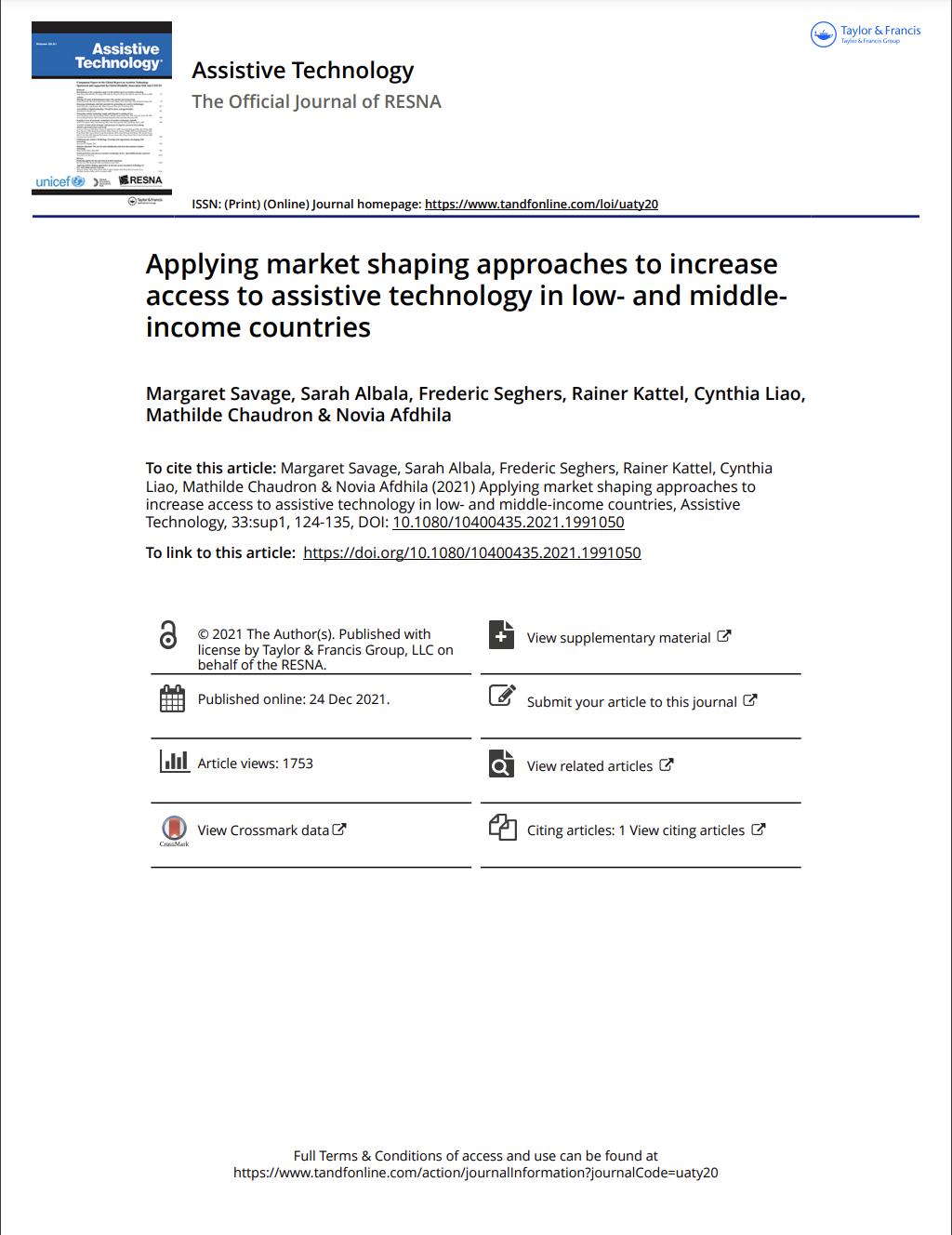
Applying market shaping approaches to increase access to assistive technology in low- and middle-income countries
Sarah Albala, Rainer Kattel, Frederic Seghers, Novia Afdhila, Margaret Savage, Cynthia Liao, Mathilde ChaudronDec. 24, 2021Academic Research PublicationsMarket shaping is aimed at improving a market’s specific outcomes, such as access to high quality, affordable AT, by targeting the root causes of these shortcomings. The paper summarizes the findings of market analyses conducted under the UK aid funded AT2030 programme in support of ATscale and aims to discuss how market shaping can help more people gain access to the AT that they need and what are the best mechanisms to unlock markets and commercial opportunity in LMICs.
-
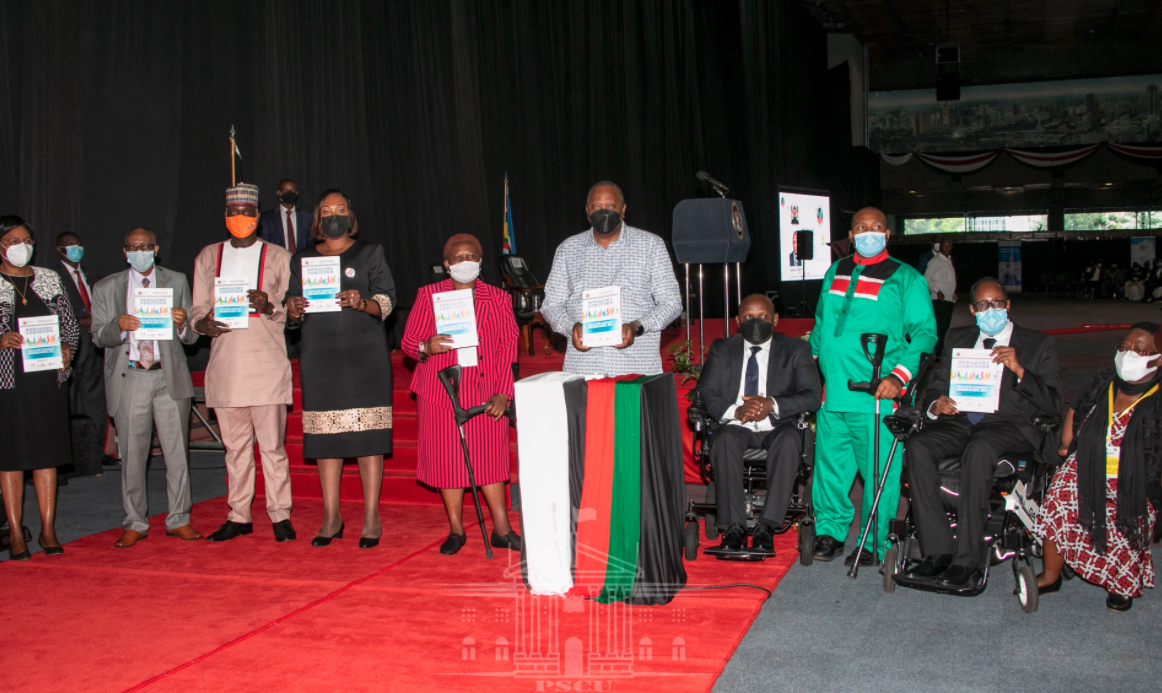
International Day of Persons with Disabilities
Clinton Health Access InitiativeDec. 8, 2021KenyaPresident Uhuru Kenyatta was the Chief Guest in 3rd December's International Day of Persons with Disabilities held at the Kenyatta International Convention Centre in Nairobi. In the history of the commemorations, this is the first time a Head of State has graced the event.
-
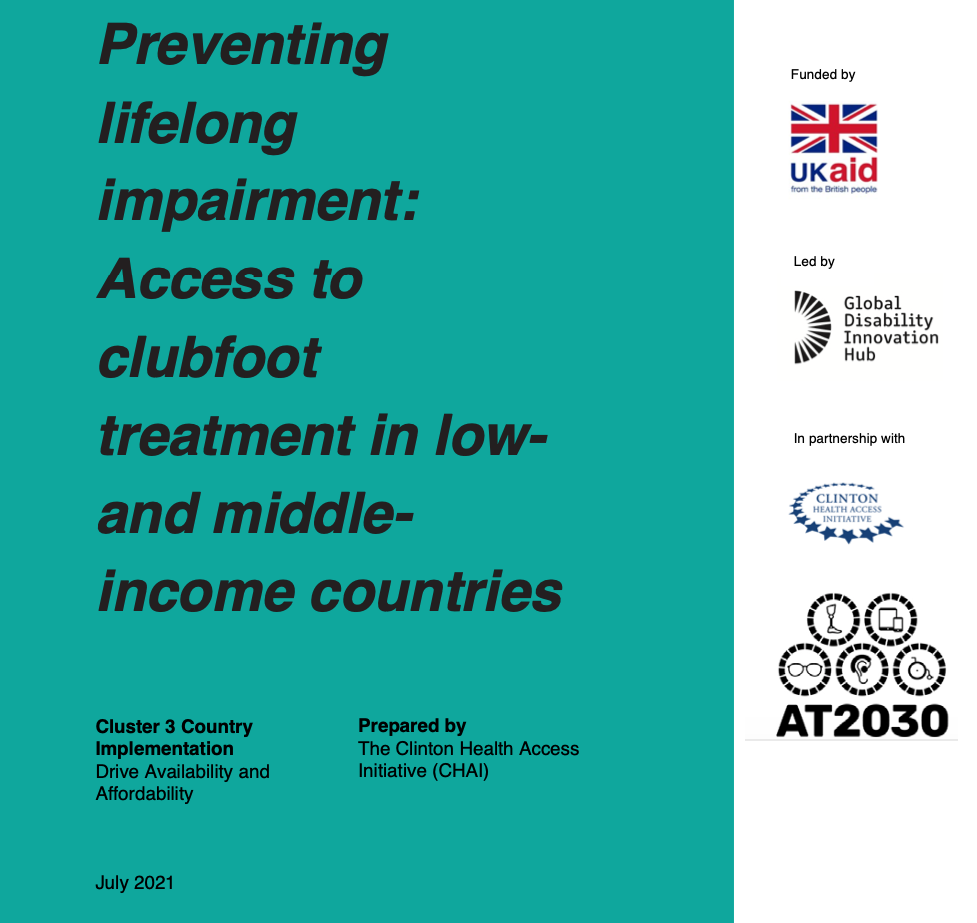
Preventing lifelong impairment: Access to clubfoot treatment in low- and middle-income countries
Clinton Health Access InitiativeJuly 19, 2021GlobalCase Studies and ReportsCongenital talipes equinovarus (CTEV), commonly known as clubfoot is one of the most common congenital conditions, affecting 1 in 800 births. Left untreated, it can lead to life-long impairment, impacting participation in society, education, and employment. Most children with clubfoot can be successfully treated with the Ponseti method, a low-cost, cost-effective, and minimally invasive treatment protocol. Despite progress, less than 1 in 5 children born with clubfoot in low- and middle-income countries (LMICs) currently receive treatment. This new cutting edge report, authored by CHAI under AT2030, explores solutions and recommendations for ensuring affordable and appropriate assistive technologies reach the children and adults with clubfoot that need it.